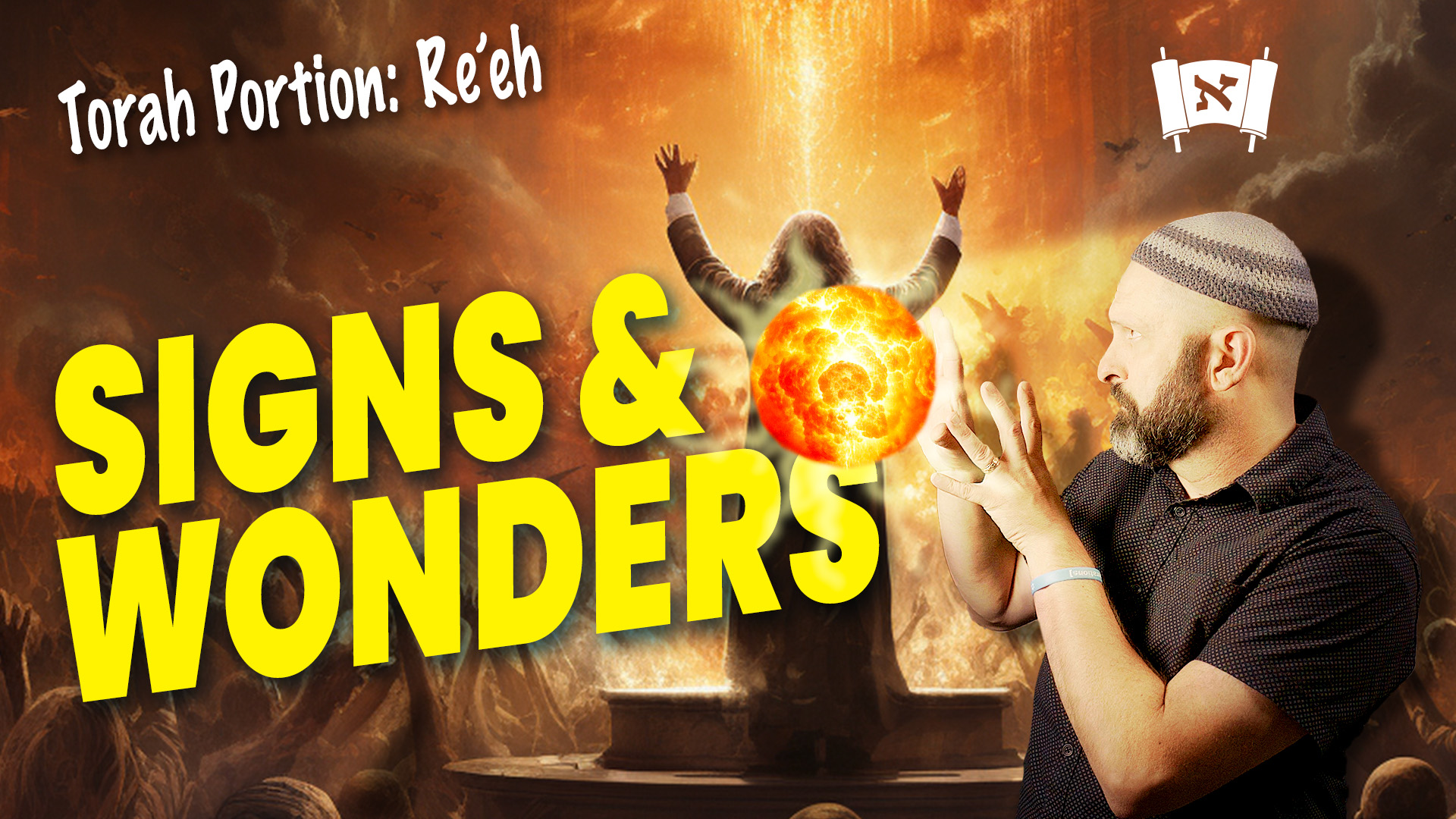Signs & Wonders
Series:

Parashat Re'eh (Deuteronomy 11:26-16:17)
In our day a large number of Yeshua’s followers find affinity with the charismatic movement, particularly among those in the Messianic or Hebrew Roots movements. It seems the reasoning behind this attraction is that they are seeking to recapture the power demonstrated by Yeshua’s earliest followers. After all, Yeshua promised power to his disciples upon their receiving the Holy Spirit after his ascension. He told his disciples:
You will receive power when the Holy Spirit has come upon you (Acts 1:8)
This power was evident in the lives of the Apostles. For instance, in Acts 3, Peter and John are on their way into the Temple complex when they encounter a lame beggar and heal him with the spoken word. In Acts 5, Peter is healing so many people that “they even carried out the sick into the streets and laid them on cots and mats, that as Peter came by at least his shadow might fall on some of them” (5:15). In Acts 28, Paul heals a man who is suffering from fever and dysentery (28:8). It seems that everywhere they turned the Apostles were performing signs and wonders.
Many people read passages like these and it awakens a desire within the human psyche to experience this spiritual power. We desire to replicate what we have only read about in our Bibles. The modern charismatic movement is an outgrowth of this desire. It constantly tries to show authenticity through signs, wonders, and prophecies of future events. But there is a strong caution that should accompany this pursuit. This week’s Torah portion speaks to the inherent danger of following after miracles and prophetic voices. It begins by establishing the condition that should capture our attention:
If a prophet or a dreamer of dreams arises among you and gives you a sign or a wonder, and the sign or wonder that he tells you comes to pass … (Deuteronomy 13:2–3[1–2])
By itself, a prophet who performs signs and wonders is not problematic. But the Torah continues to say that even if that prophet performs all kinds of miracles, and foretells events that are confirmed with signs and wonders, he still has to pass the litmus test. A true prophet must uphold the commandments given to Israel through the mouth of Moses. If he does not, then he is to be rejected as a false prophet:
But that prophet or that dreamer of dreams shall be put to death, because he has taught rebellion against the LORD your God, who brought you out of the land of Egypt and redeemed you out of the house of slavery, to make you leave the way in which the lord your god commanded you to walk. So you shall purge the evil from your midst. (Deuteronomy 13:6[5])
There are many people today who are able to produce signs and wonders, predict the future, or even know secret things about a person’s life. But these things alone do not qualify them as a true prophet. The Torah is explicit in that a true prophet must point people back to the instructions given to the Children of Israel on Mount Sinai. The signs and wonders that a prophet works are not an end to themselves. They are only to get people’s attention so that he can instruct them. A true prophet will instruct people to return to the LORD's commandments, but a false prophet will use signs and wonders as a lure to entice people away from what the LORD desires of them.
Although a prophet may promise blessing and good fortune for hearing his word, we are to only listen to the one who speaks on behalf of the God of Abraham, Isaac, and Jacob. If we will heed the true voice of the LORD and follow His instructions, He promises to bless us. But this is only on the condition that we “obey the voice of the LORD your God, keeping all his commandments that I am commanding you today, and doing what is right in the sight of the LORD your God” (Deuteronomy 13:19[18]).
We must remember that not all that glitters is gold. We must know the Word of God and use discernment when we listen to those who claim to speak on behalf of the Almighty. They may be able to produce incredible signs and wonders, but if they lead us in a direction that would be in opposition to the instructions of the Torah then they cannot be trusted. Yeshua made it clear which direction he was pointing his disciples. He instructed them:
Until heaven and earth pass away, not an iota, not a dot, will pass from the Torah until all is accomplished. Therefore whoever relaxes one of the least of these commandments and teaches others to do the same will be called least in the kingdom of heaven, but whoever does them and teaches them will be called great in the kingdom of heaven. (Matthew 5:18–19)
May we continue to heed to voice of the True Prophet, Yeshua the Messiah, who continually points his disciples back to Torah. And may we all anticipate his return each and every day.








